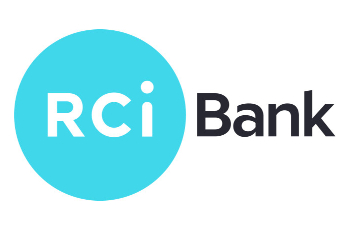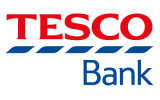This comparison simply includes all savings accounts.
Easy Access Savings Accounts
New customers use promo code CHIPWELCOME and deposit at least £1 within 14 days to receive a 1.10% AER boost to standard 3.50% AER rate for 3 months
Interest paid on account balances over £20,000. No interest paid if balance is below. Winner of Platinum Feefo Trusted Service Award in 2024
If you're looking for flexible and easy-to-use saving options, then easy access savings accounts could be right up your street.
Easy access savings accounts, also known as instant access or no-notice accounts, have grown in popularity due to their flexibility and simplicity. These accounts offer a hassle-free way to start saving, but understanding how they work is crucial to maximising your returns.
What is an Easy Access Savings Account?
An easy access savings account is a type of savings account that allows you to deposit and withdraw funds with little to no restrictions. This means you can access your savings whenever you need, without waiting periods or penalties – hence the name 'easy access'.
It's a popular choice for savers who want a combination of competitive interest rates, the ability to make additional deposits, and, importantly, the flexibility to access their money when they want.
How do Easy Access Savings Accounts Work in the UK?
In the UK, most banks and building societies offer easy access savings accounts. You can open one either in-branch, online, or over the phone. Here's how they typically work:
Deposits
You can start with a minimum deposit, which varies across different providers, and add money to your account whenever you want.
Withdrawals
You're free to withdraw money anytime, with no penalties. Some accounts, however, might limit the number of withdrawals you can make each year.
Interest
These accounts pay interest on your savings, which is usually calculated daily and paid monthly or annually into your account.
Access
Most providers offer a range of options for managing your account, including online, mobile app, over the phone or in-branch.
Keep in mind that interest rates for easy access accounts can fluctuate, and they're often variable rather than fixed. This means that your bank or building society can change them at any time, usually in response to changes in the Bank of England's base rate.
The Advantages of Easy Access Savings Accounts
Just like any financial product, easy access savings accounts come with a unique set of benefits.
Accessibility of Funds
One of the main benefits of an easy access savings account is, unsurprisingly, the ease of access to your funds.
You're able to withdraw your savings when you need them, without any notice.
This can be incredibly useful for unexpected costs or emergencies. Your money isn't locked away, so you can handle whatever life throws at you without financial worry.
Interest Rates
While the interest rates for easy access accounts aren't usually as high as those for fixed-term savings accounts or bonds, they can still be quite competitive, especially when compared to regular current accounts.
Many banks and building societies offer tiered interest rates for these accounts, meaning the more money you have saved, the higher the interest rate you'll earn.
It's an excellent incentive to keep growing your savings pot.
Flexibility
Flexibility is another compelling reason to consider easy access savings accounts.
Not only can you withdraw funds whenever you need, but you can also add to your savings at any time.
Whether you're depositing your monthly salary or adding a lump sum, these accounts give you the freedom to manage your savings your way.
It's worth mentioning that while some easy access accounts may limit the number of withdrawals per year, many providers in the UK offer unrestricted withdrawals.
This means you can dip into your savings as often as you need to, without facing penalties or losing out on interest.
The Disadvantages of Easy Access Savings Accounts
As with any financial product, it's essential to weigh the cons alongside the pros before making a decision.
Lower Interest Rates Compared to Fixed-Term Savings Accounts
Although easy access accounts offer more flexibility, this comes at the cost of lower interest rates.
Fixed-term savings accounts, where your money is locked away for a set period, often offer higher interest rates in return for reduced access to your funds.
If you're not likely to need immediate access to your savings and want to maximise your interest earnings, a fixed-term account could be more beneficial.
Potential for Overspending
The convenience of being able to withdraw money at any time can also lead to temptation.
With your savings easily accessible, you might find yourself dipping into them more often than you intended.
This can slow down the growth of your savings and hamper your long-term financial goals.
Impact of Inflation
Inflation can erode the value of your savings over time, especially if the interest rate of your easy access account is lower than the rate of inflation. In this scenario, the buying power of your money decreases, even as you continue to save.
Comparing Easy Access Savings Accounts to Other Types of Savings Accounts
While easy access savings accounts offer a great balance of convenience and earning potential, they aren't the only options available.
Let's compare them to other types of savings accounts to give you a clearer picture of the savings landscape in the UK.
Instant access accounts compared with easy access accounts
It is easy to get confused by the differences between easy access and instant access accounts. While both of these provide you with rapid access to your money, with an easy access account you must transfer your savings to another account, for instance your bank account, before you can receive the money as cash.
Generally, you will carry this out over the internet and there is likely to be a delay between your request to withdraw money, the money appearing in your bank account and for the funds to clear so that you can withdraw them.
This will vary between savings accounts and will depend on the bank, but it could typically take several days with the longest delay often being clearing.
With an instant access savings account, you can walk into the bank or building society and withdraw your cash immediately.
While there are no restrictions on the amount of your savings you are able to withdraw, you might be penalised in terms of loss of interest. From the provider’s viewpoint such an account is more expensive to manage than an easy access account. Consequently, interest rates tend to be a little lower than those on an equivalent easy access account.
Easy Access Savings Accounts vs. Fixed-Term Savings Accounts
Fixed-term savings accounts, also known as term deposits or bonds, typically offer higher interest rates than easy access savings accounts.
However, they require you to lock your money away for a specified period, usually ranging from one to five years.
This lack of access can be restrictive if you need your funds before the term ends.
In contrast, easy access accounts provide you with the flexibility to access your money whenever you need it, albeit often with a slightly lower interest rate.
Easy Access Savings Accounts vs. Notice Savings Accounts
Notice savings accounts sit somewhere in the middle of easy access and fixed-term accounts.
They offer better interest rates than most easy access accounts, but require you to give notice before making a withdrawal - typically 30, 60 or 90 days.
If you're unlikely to need instant access to your savings but want a better return on your money, a notice account could be a suitable compromise.
Easy Access Savings Accounts vs. Individual Savings Accounts (ISAs)
An easy access savings account can also be held in an ISA wrapper. Otherwise known as a cash ISA, the advantage is that you don’t have to pay tax on your interest. The two largest downsides are the restrictions on how much you are able to save each year in a cash ISA and you will not be able to replace any money you withdraw.
There is, however, an exception to this. With a flexible ISA you can withdraw money and replace it within the same tax year without losing any of your allowance, though not all providers offer flexible ISAs.
ISAs are tax-efficient savings accounts.
They allow you to earn interest on your savings tax-free up to a certain limit each year (£20,000 for the 2023/24 tax year).
There are two main types: Cash ISAs, which function much like easy access accounts but with tax-free interest, and Stocks and Shares ISAs, which invest your money in the stock market.
Easy access accounts can't offer the tax benefits of an ISA, but they don't have an annual limit on how much you can save.
They're a great complement to an ISA, allowing you to continue saving once you've reached your annual ISA limit.
Which is the best choice for me?
The best easy access savings account will depend on your circumstances, savings objectives and tax position.
You might decide to keep some savings in an instant access savings account to provide you with emergency funds immediately; some in an easy access savings account that will provide you with cash within a few days of making a withdrawal, or alternatively you might decide on a cash ISA that provides you with all the advantages of an easy access account without the need to pay tax on your interest.
The problem with cash ISAs is that the interest rates are often lower than those of a conventional easy access savings account, so don’t forget to check out the small print.
Criteria to Consider When Choosing an Easy Access Savings Account
How do you choose the right account for your needs? Here are some key factors to consider.
Interest Rate
The interest rate is one of the most critical aspects to consider. This rate determines how much your savings will grow over time. While easy access accounts generally offer lower rates than fixed-term accounts, they can still vary significantly from one provider to another. Make sure to shop around and compare rates before deciding.
Minimum Deposit Requirement
Some easy access savings accounts require a minimum initial deposit. This amount can vary considerably between different providers - some might require as little as £1, while others could ask for £1,000 or more. Be sure to check this before opening an account, especially if you're starting with a smaller amount of savings.
Terms and Conditions
Like any financial product, easy access savings accounts come with terms and conditions. These can include withdrawal limits, account management methods (online, mobile, branch, etc.), and whether the interest rate is fixed or variable. Read these carefully to ensure the account fits your needs and lifestyle.
Remember, the best easy access savings account for you will depend on your personal circumstances and savings goals. Take the time to compare different accounts and consider seeking financial advice if you're unsure.
How to Open an Easy Access Savings Account in the UK
Opening a savings account in the UK is usually a straightforward process. However, the exact steps and requirements can vary from one provider to another. Here's a general guide to get you started.
Step 1: Do Your Research
First and foremost, you'll want to do your research. Compare different easy access savings accounts, taking into account their interest rates, terms and conditions, minimum deposit requirements, and customer reviews. Make sure the account you choose aligns with your savings goals and financial situation.
Step 2: Prepare Your Documents
Once you've chosen a provider, you'll need to gather the necessary documents.
These usually include proof of identity (such as a passport or driver's licence), proof of address (like a utility bill or council tax bill), and sometimes proof of income.
Some providers may allow you to verify your identity online using a digital ID verification service.
Step 3: Apply Online, In Branch, or Over the Phone
Depending on the provider, you can usually apply for an easy access savings account online, in-branch, or over the phone.
The application process typically involves filling out a form with your personal details, selecting the type of account you want to open, and agreeing to the terms and conditions.
Step 4: Make Your Initial Deposit
Once your account is open, you'll typically need to make an initial deposit within a certain timeframe.
The amount will depend on the account's minimum deposit requirement.
Managing Your Easy Access Savings Account Effectively
Here are some tips to help you make the most of your account.
Set Up Regular Deposits
One of the best ways to grow your savings is to set up regular deposits into your account.
This could be a fixed amount you transfer each month, or it could be any spare cash you have at the end of the month.
Regular contributions can help your savings grow steadily over time.
Monitor the Interest Rate
Interest rates can fluctuate, so it's a good idea to keep an eye on them. If your provider drops their rate significantly, you might want to consider switching to a different account with a more competitive rate.
Always be on the lookout for better deals.
Limit Unnecessary Withdrawals
Although easy access accounts allow unlimited withdrawals, try to only take out money when necessary.
Frequent withdrawals can hinder the growth of your savings.
Use Online Banking
Most providers offer online or mobile banking, making it easy to manage your account, check your balance, and transfer funds at any time and from anywhere.
These tools can be especially useful for keeping track of your savings and ensuring you're on track to meet your financial goals.
FAQs:
- Q: Do all easy access savings accounts offer the same interest rates?
A: No, the interest rates offered on easy access savings accounts can vary significantly between different providers. It's important to compare rates from several banks or building societies before deciding where to open an account.
Q: Can I make unlimited withdrawals from my easy access savings account?
A: Most easy access savings accounts allow you to make unlimited withdrawals. However, some may have restrictions, such as a certain number of penalty-free withdrawals per year. Always check the terms and conditions of your account.
Q: Will I be taxed on the interest I earn from my easy access savings account?
A: Yes, the interest you earn on an easy access savings account is subject to tax. However, thanks to the Personal Savings Allowance introduced by the UK government, basic-rate taxpayers can earn up to £1,000 in savings interest tax-free per year, while higher-rate taxpayers can earn up to £500 tax-free. Additional rate taxpayers don't receive a Personal Savings Allowance.
Q: Can I open more than one easy access savings account?
A: Yes, there's usually no limit to the number of easy access savings accounts you can open. However, it's worth noting that managing multiple accounts can be more complex, and splitting your savings may not always yield the best returns.
Q: Can I add to my savings in an easy access account at any time?
A: Yes, one of the main benefits of an easy access savings account is the ability to add to your savings at any time. This makes it a flexible choice for savers who want to regularly add to their savings pot.
Instant access accounts compared with easy access accounts
It is easy to get confused by the differences between easy access and instant access accounts. While both of these provide you with rapid access to your money, with an easy access account you must transfer your savings to another account, for instance your bank account, before you can receive the money as cash.
Generally, you will carry this out over the internet and there is likely to be a delay between your request to withdraw money, the money appearing in your bank account and for the funds to clear so that you can withdraw them.
This will vary between savings accounts and will depend on the bank, but it could typically take several days with the longest delay often being clearing.
With an instant access savings account, you can walk into the bank or building society and withdraw your cash immediately.
While there are no restrictions on the amount of your savings you are able to withdraw, you might be penalised in terms of loss of interest. From the provider’s viewpoint such an account is more expensive to manage than an easy access account. Consequently, interest rates tend to be a little lower than those on an equivalent easy access account.
Easy access ISA savings account
An easy access savings account can also be held in an ISA wrapper. Otherwise known as a cash ISA, the advantage is that you don’t have to pay tax on your interest. The two largest downsides are the restrictions on how much you are able to save each year in a cash ISA and you will not be able to replace any money you withdraw.
There is, however, an exception to this. With a flexible ISA you can withdraw money and replace it within the same tax year without losing any of your allowance, though not all providers offer flexible ISAs.
Which is the best choice for me?
The best easy access savings account will depend on your circumstances, savings objectives and tax position.
You might decide to keep some savings in an instant access savings account to provide you with emergency funds immediately; some in an easy access savings account that will provide you with cash within a few days of making a withdrawal, or alternatively you might decide on a cash ISA that provides you with all the advantages of an easy access account without the need to pay tax on your interest.
The problem with cash ISAs is that the interest rates are often lower than those of a conventional easy access savings account, so don’t forget to check out the small print.









